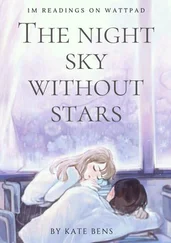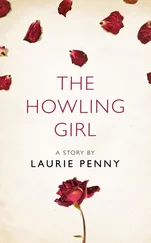* * *
That night, laptop shut, sheets flat, Toledo drifting into unconsciousness all around her, she dreamed herself into the Hinterland. Lucid dreaming always came easiest in her mother’s home, where Irene could so well remember her early lessons in the practice. In her mother’s house, she didn’t even need the trick with ringing the bells on the shelf, because she was already home. She almost felt her mother’s fingers on her forehead, her voice chanting the words, talking Irene into dreaming, helping her stay under it. I want you safe in your own head, her mother would say. I always want you to be able to find me, no matter what happens.
If sleeping is like dying, her mother had taught her, then dreaming is like heaven. If dreaming is like heaven, then you can build your own heaven, if you know how. Or you can build your own hell, a massive Victorian monstrosity with eleven rambling wings connected by a whistling ruin that wants to annihilate you. Irene had decided maybe dreaming is a preview for the afterlife, a directionless meander through our finest wishes, our most compelling fears, our wretched secret sexual urges, our basic confusion. Like life, like memory, most of which we will experience deeply and not remember at all. She knew that science could tell her almost nothing about dreams. And almost nothing about death. The most important things are mysteries: the universe, and the way we die.
Asleep, she sat on the porch of her mother’s house and stared at the bleak Hinterland. Irene put her teeth together and kept all the guilt inside her mouth, where it piled up on her tongue and made her sick. When her mother came out of the house, at last, she went and sat on the porch rail. She pulled a stem of the climbing rosebush that had wrapped itself around the railing through her hand. It didn’t hurt her. In the dreamworld, there are no thorns on roses. If you count your fingers, you will find the wrong number. If you pull your hair out, it will be daisies. If your drunk mother talks to you, it will make sense.
“I’m sorry, Irene,” said her mother.
“It’s OK,” said Irene.
“No, I’m really sorry,” her mother insisted. “Here you are, home for the first time in a year, and I feed you mushrooms. That is just a mistake I will not forgive myself.”
Her mother did not say, I’m sorry for being drunk. I’m sorry for being incomprehensible. I’m sorry for nearly burning you to death. I’m sorry for giving birth to you. I’m sorry for delivering you from wherever you were before you were born. I’m sorry.
“It’s OK,” said Irene again.
“Did you pick them out?” said her mother.
“Yes, I picked them out.”
“And ate the beef?”
“Mmmm,” said Irene.
“When I wake up, I probably won’t remember,” said her mother. “So if you tell a lie, I’m at your mercy. But you’ll always know.”
“I’m sure I will,” said Irene.
“What do you want to do?” said her mother.
“I want to talk about my interview,” said Irene. “I don’t want to come across as desperate. But I think I am desperate.”
“You are.”
“Yes, I’m desperate to go there.”
“Did you pull it up out of the well? Did the well show you this fellowship, Irene? Or did you try to stuff it down the well yourself?”
In the center of the square of the Hinterland there was a well. An old stone well that was deep and had no bottom. When she had been learning lucid dreaming from her mother, as a child, her mother had used this well as a trick for her mind, to let her access her subconscious. So she might say, Well, show me something pretty. Then she would reach in and pull up a gardenia bush. Well, show me what I should wear to the prince’s ball. She would reach in and pull up an outfit. Now that she had better control of her dreaming mind, she didn’t use the well as much. But when her mother said, “pull it out of the well,” she was asking if Irene really wanted it, or if it was something she was only trying to want.
“Mom, I would be a janitor there, and I would be happy to get that job. A grad student, fine. I’ll pay to go. A research assistant, great. Give me a job. A fellow, my god. Could I ever deserve that?”
“You deserve everything,” said her mother. “You’re the smartest person in the whole world and I’m so proud of you.”
Irene relaxed. She put her head in her mother’s lap. She drifted farther into sleep. She left the Hinterland without stepping foot into Dark House. It was a beautiful dream.
* * *
In the morning, her mother would not get out of bed.
“How did you get in bed,” said Irene. “How did you get yourself up the stairs?”
Her mother lay in the bed with the covers pulled up to her chin, one arm thrown over her face, her nose buried in the back of her elbow. Her bedroom was quaint and quiet, white walls and carpet, an iron floor lamp with a toile shade, lace around the Victorian patchwork quilt on the bed. Many throw pillows, also edged in lace. “I have a headache,” said her mother. “I am not getting out of bed.”
“My interview isn’t until eleven,” said Irene. “Can I bring you anything? Tea? Pills?”
“Tea and pills,” said her mother.
In the kitchen, Irene pulled three tea bags out of the canister and flooded the cup with boiling water. She wrapped the strings around the handle, tore the foil off two sinus pills, and trudged back up the stairs.
“Just leave it on the nightstand,” said her mother, who had not moved.
“Mom, what’s that smell?” Irene smelled something sharp.
“I had a problem,” said her mother from under her elbow. Her lips were terse, wired together.
Irene set the tea and pills down on the nightstand as directed. She walked into the bathroom and began to fill the clawfoot tub. It was wide and deep, dramatic. Irene squirted lavender bath gel into the water under the running tap, and it began to foam up. When it was steaming and full, Irene went back into the bedroom. Her mother was sitting up and had taken the pills with the boiling tea.
“Go get in the tub,” said Irene. “Throw your clothes outside the door when they’re off.”
The stain in the bed was orange, a deep vibrant orange. It was large. Irene swept the fluffy quilt back, stripped off the white sheet and the mattress pad. Irene felt a mad, animal urge to run away from that stain in the bed, from a mother who puts stains in her bed. But she picked up her mother’s clothes off the floor in the hallway, bundled them into the sheet, and hauled the armful down to the laundry room. Standing in the kitchen, listening to the washing machine fill, she felt a drip of water on her head. She looked up and saw a water stain darkening on the kitchen’s drop ceiling, and raced for the stairs. Her mother had let the water of the tub overflow. Had she drowned? Was she dead? How was she able to sustain life in this state?
It’s not good when your mother pisses herself in her bed. It’s like you’re the one doing it, and you feel sorry. But you’re also the one seeing it, so you feel rage. There was too much of her mother in Irene for her to feel completely safe from pissing her own bed, and no matter what tourniquet she tied around her neck, she could not guarantee that her body would effectively die, that her belly button would effectively disappear, that she would separate, be just a head, her own head apart from her mother’s.
She found her mother dozing with the faucet still spraying, the water in the tub spilling over gently onto the floor. Irene switched off the water and began to cry. Later that day she drove to the Toledo Institute of Astronomy, parked in the visitors’ lot, barfed in a bush, blew up her interview, and accepted an offer in Pittsburgh instead. Pittsburgh had a bridge 240 feet above the Allegheny River. It would do.
Читать дальше












